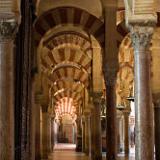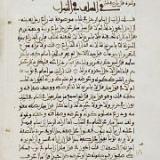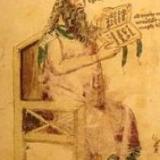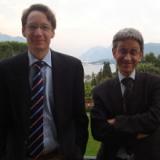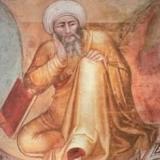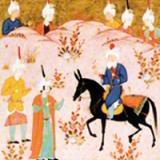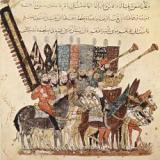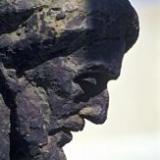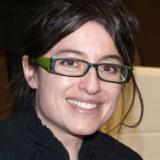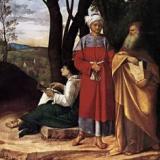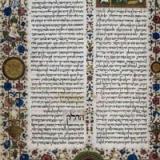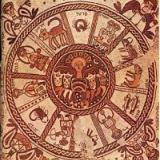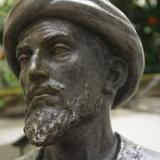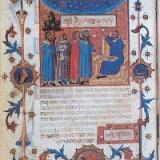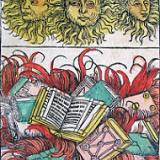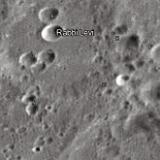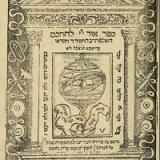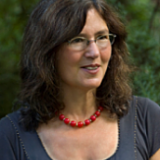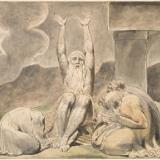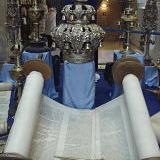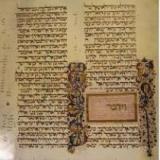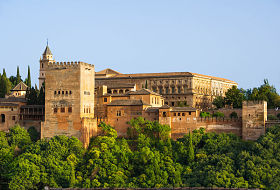Andalusia
A look at developments in the Iberian Peninsula (modern-day Spain and Portugal) while it was under Islamic rule. This part of the podcast takes in such great figures as Averroes, Maimonides, Ibn 'Arabi, Ibn Khaldūn, and Gersonides, and includes extensive coverage of philosophy among Jews as well as Muslims. Interviews feature Charles Burnett, Gad Freudenthal, Dag N. Hasse, Sarah Pessin, Sarah Stroumsa, and Richard C. Taylor. (A big thank you to Daniel Davies for his helpful comments on the scripts on philosophy among Jews.)
A book version of these podcasts is available from Oxford University Press.
• P. Adamson, Philosophy in the Islamic World: A Very Short Introduction (Oxford: 2015).
• A.K. Bennison, The Almoravid and Almohad Empires (Edinburgh: 2016).
• M.R. Cohen, Under Crescent and Cross: the Jews in the Middle Ages (Princeton: 1994).
• M. Di Giovanni, "Averroes and Philosophy in Islamic Spain," in J. Marenbon (ed.), The Oxford Handbook of Medieval Philosophy (Oxford: 2012), 106-29.
• D.H. Frank and O. Leaman (eds), History of Jewish Philosophy (London:1997).
• D.H. Frank and O. Leaman (eds), The Cambridge Companion to Medieval Jewish Philosophy (Cambridge: 2003).
• R. Haliva (ed), Scepticism and Anti-Scepticism in Medieval Jewish Philosophy and Thought (Berlin: 2018).
• L.P. Harvey, Islamic Spain 1250 to 1500 (Chicago: 1990).
• S. Harvey (ed.), The Medieval Hebrew Encyclopedias of Science and Philosophy (Dordrecht: 2000).
• V. Mann, T.F. Glick and J.D. Dodd, Convivencia: Jews, Muslims and Christians in Medieval Spain (New York: 1992).
• E. Schweid, The Classic Jewish Philosophers: From Saadia Through the Renaissance, trans. L. Levin (Leiden: 2008).
• C. Sirat, A History of Jewish Philosophy in the Middle Ages (Cambridge: 1985).
Posted on
A look at the culture and historical context that made possible a flowering of philosophy among Muslims and Jews in al-Andalus (Muslim-controlled Spain and Portugal).
Posted on
The development of Islamic law and jurisprudence (fiqh), and the many-sided output of the legal theorist Ibn Ḥazm.
Posted on
Intellect and alienation in Ibn Bājja and Ibn Ṭufayl, author of the philosophical desert island castaway tale Ḥayy Ibn Yaqẓān.
Posted on
An introduction to “the Commentator” Averroes, and his defense of philosophy in the Decisive Treatise
Posted on
A special 150th double interview episode on the transmission of philosophy from Arabic into Latin.
Posted on
You know what I'm thinking: Averroes' rather surprising notion that all humankind shares a single intellect.
Posted on
Averroes scholar Richard C. Taylor joins Peter to talk about Averroes' views on the relation between Islam and philosophy.
Posted on
Sufism, the mystical tradition of Islam, unites with philosophy in the work of Ibn 'Arabī.
Posted on
The historian Ibn Khaldūn applies the methods of philosophy to understand the rise and fall of political regimes.
Posted on
Neoplatonism returns in Ibn Gabirol (known in Latin as Avicebron), who controversially holds that everything apart from God has both matter and form.
Posted on
Peter chats with Sarah Pessin about the Neoplatonism of Jewish philosophers such as Isaac Israeli, Ibn Gabirol, and Maimonides.
Posted on
Judah Hallevi argues that Judaism has a better claim to belief than philosophy, Christianity, or Islam.
Posted on
Abraham Ibn Ezra, Ibn Daud and Maimonides consider the philosophical implications of astrology as science flourishes in the Jewish culture of Andalusia.
Posted on
Baḥya Ibn Paquda and Maimonides explore the ethical dimension of the Jewish scriptures and legal tradition.
Posted on
The great Jewish thinker and legal scholar Maimonides, and the philosophical ideas in his Mishneh Torah and Guide for the Perplexed.
Posted on
Peter tests different approaches to interpreting Maimonides, focusing on his discussion of the eternity of the world, which tries to settle the debate by declaring a draw.
Posted on
Sarah Stroumsa tells Peter about Maimonides' cultural surroundings and attitudes towards philosophy and the Islamic tradition.
Posted on
Maimonides’ works provoke a bitter dispute among Jews in France and Spain over the relation of philosophy to Judaism.
Posted on
The super-commentator Gersonides and other Jews digest the ideas of Averroes.
Posted on
Ḥasdai Crescas shows Aristotelian physics who’s boss, by defending alternative conceptions of time, place and infinity.
Posted on
Tamar Rudavsky joins Peter to talk about the two great medieval Jewish thinkers after Maimonides: Gersonides and Crescas.
Posted on
The Book of Job provokes Saadia, Maimonides, Ibn Tibbon and Gersonides to reflect on why God allows suffering.
Posted on
The rich symbolism of the Zohar and the spiritual practices of Abraham Abluafia feature in the mystical movement known as Kabbalah.
Posted on
Joseph Albo and Isaac Abravanel critique Maimonides’ attempt to lay down foundations for the Jewish law.
Posted on
Leading scholar of medieval Jewish thought Gad Freudenthal joins Peter in a concluding episode on Andalusian thought.




